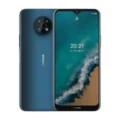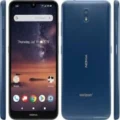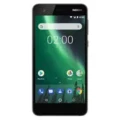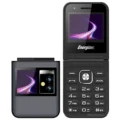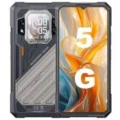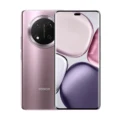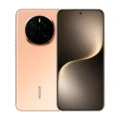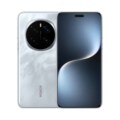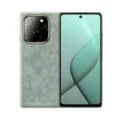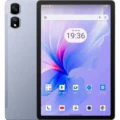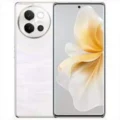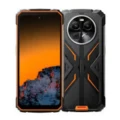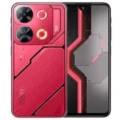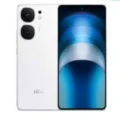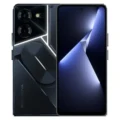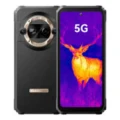Nokia 5310 (2020)
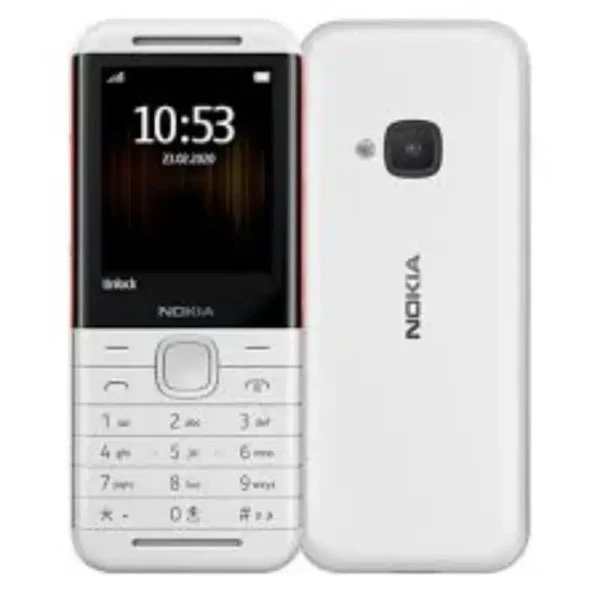

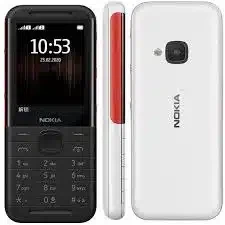
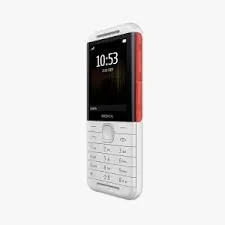
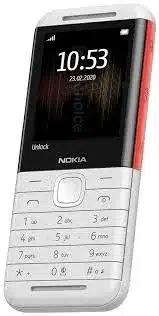
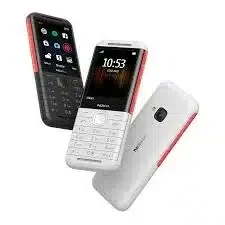
-
: 8MB RAM MT6260A
-
: 2.4" 240x320 pixels
-
: 1200mAh
-
: 0.2MP
Introducing the Nokia 5310 (2020), a stylish and compact feature phone that combines nostalgic charm with modern functionality. Crafted by HMD Global, this device pays homage to the iconic Nokia 5310 XpressMusic while offering updated features for today’s users.
The Nokia 5310 (2020) features a sleek and ergonomic design, reminiscent of its predecessor. Its 2.4-inch QVGA display provides clear visibility for easy navigation through menus and notifications, while the tactile physical buttons offer a familiar and responsive user experience.
Enjoy your favorite music wherever you go with the Nokia 5310’s dual front-facing speakers. Whether you’re listening to your MP3 collection or tuning in to the FM radio, the device delivers crisp and immersive audio quality, making every listening experience enjoyable.
Capture moments on the fly with the VGA rear camera, perfect for quick snapshots and sharing memories with friends and family. The Nokia 5310 (2020) is designed to be a reliable companion for those who appreciate simplicity and efficiency in their mobile devices.
Equipped with a long-lasting 1200mAh battery, the Nokia 5310 (2020) ensures extended usage without the need for frequent charging. Stay connected with essential features such as calls, texts, and the classic Snake game for a touch of nostalgia.
In conclusion, the Nokia 5310 offers a delightful blend of retro design and modern functionality. Whether you’re looking for a backup phone, a device for music lovers, or simply embracing the simplicity of a feature phone, the Nokia 5310 delivers a charming and reliable mobile experience. Elevate your mobile journey with the Nokia 5310– where nostalgia meets innovation in a compact and stylish package.
Specs
Network
| 2G Network GSM 850 / 900 / 1800 / 1900 - SIM 1 & SIM 2 (dual-SIM) CDMA 800 / 1900 |
GSM 900 / 1800 - SIM 1 & SIM 2 (dual-SIM model only) |
LAUNCH
| Announced | March, 2025 |
| Status |
Available. Released 2020, April 02 |
BODY
| Dimensions | 123.7 x 52.4 x 13.1 mm, 44.8 cc (4.87 x 2.06 x 0.52 in) |
| Weight | 88.2 g (3.10 oz) |
| SIMs SIM (Subscriber Identity Module) is a small card that contains mobile network subscriber's account information. This allows the phone using the card to attach to a mobile network. The SIM card is most commonly associated with GSM and UMTS mobile networks. Moving a SIM card from one phone to another allows a subscriber to switch mobile phones without having to contact their mobile network carrier. SIM cards can also be used by a phone to store limited amounts of data, such as phone numbers and text messages. |
Single SIM (Mini-SIM) or Dual SIM (Mini-SIM, dual stand-by) |
Display
| Display Type Display Technology => A number of display technologies and types used in mobile phones => TFT (Thin Film Transistor), IPS (In-Place Switching), OLED (Organic Light Emitting Diode), AMOLED (Active-Matrix Organic Light-Emitting Diode), Super AMOLED (an even advanced version of AMOLED), Resistive Touchscreen (Resistive touchscreens contain two layer of conductive material with a very small gap between them which acts as a resistance), Capacitive Touchsceen (Capacitive touchscreen technology consists of a layer of glass coated with a transparent conductor) | TFT LCD |
| Size | 2.4 inches, 17.8 cm2 (~27.5% screen-to-body ratio) |
| Resolution | 240 x 320 pixels, 4:3 ratio (~167 ppi density) |
PLATFORM
| Chipset Chipset is a group of integrated circuits designed to perform one or a more dedicated functions, often with real time computing constraints, Popular smartphones are equipped with more advanced embedded chipsets that can do many different tasks depending on their programming. | Mediatek MT6260A |
MEMORY
| Card Slot Memory Card Slot is a special slot for inserting a memory card. Memory cards allow you to expand the phone's built-in memory, A memory card (sometimes called a flash memory card or a storage card) is a small storage medium used to store data such as text, pictures, audio, and video, for use on small, portable or remote computing devices such as mobile phones, mp3 players, digital cameras. | microSDHC |
| Internal | 16MB 8MB RAM |
MAIN CAMERA
| Cameras Specs Today’s smartphones come equipped with a very comprehensive set of camera related specifications. Our smartphone, for many of us, has become our primary camera due to it being the one we always have with us. |
VGA |
| Video | LED flash |
SELFIE CAMERA
| Cameras Specs Today’s smartphones come equipped with a very comprehensive set of camera related specifications. Our smartphone, for many of us, has become our primary camera due to it being the one we always have with us. |
No |
SOUND
| Loudspeaker | Yes, with dual speakers |
| 3.5mm jack |
Yes |
COMMS
| WLAN |
No |
| Positioning |
No |
| Bluetooth Bluetooth is a wireless communications technology for exchanging data between mobile phones, headsets, computers and other network devices over short distances without wires, Bluetooth technology was primarily designed to support simple wireless networking of personal consumer devices. | 3.0, A2DP |
| Infrared Infrared connectivity is an old wireless technology used to connect two electronic devices. It uses a beam of infrared light to transmit information and so requires direct line of sight and operates only at close range. | |
| USB | microUSB 1.1 |
| NFC NFC (Near field communication) is a set of standards for smartphones and similar devices to establish peer-to-peer radio communications with each other by touching them together or bringing them into proximity, usually no more than a few inches. | |
| Radio |
Features
BATTERY
| Battery Type Battery Type => Cell phones run on various kinds of batteries depending on the manufacturer, phone size or shape and features. There are basically four types of cell phone batteries => Lithium Polymer, Lithium Ion, Nickel Metal Hydride and Nickel Cadmium. | Li-Ion (Lithium Ion) |
| Capacity Battery Capacity is a measure (typically in Amp-hr) of the charge stored by the battery, and is determined by the mass of active material contained in the battery. The battery capacity represents the maximum amount of energy that can be extracted from the battery under certain conditions. | 1200 mAh |
| Placement | removable |
MISC
| Colors |
White/Red, Black/Red |
| Model | TA-1230, TA-1212 |
| SAR EU Each GSM handset has a radio transmitter and receiver in order to operate in the wireless GSM network. That transceiver is manufactured so that when used next to the ear and when worn on the belt, it won't exceed the limits for exposure to radio frequency energy set by the authorities. The authorities in question here are the Federal Communications Commission (FCC) of the U.S. Government, Industry Canada of the Canadian Government (IC), and the Council of the European Union. |
1.13 W/kg (head) 1.57 W/kg (body) |
| Price |
About 70 EUR |
TESTS
Reviews
Disclaimer Note
We strive to maintain accurate and up-to-date content on our website for general information purposes only. Please refrain from using the material for business, legal, or any other decisions.


